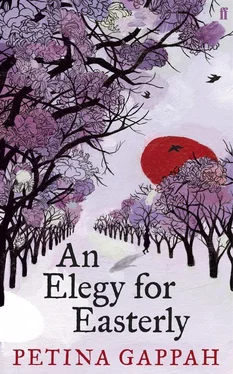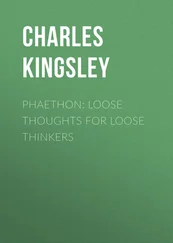Petina Gappah - An Elegy for Easterly
Здесь есть возможность читать онлайн «Petina Gappah - An Elegy for Easterly» весь текст электронной книги совершенно бесплатно (целиком полную версию без сокращений). В некоторых случаях можно слушать аудио, скачать через торрент в формате fb2 и присутствует краткое содержание. Год выпуска: 2009, Издательство: Faber & Faber, Жанр: Современная проза, на английском языке. Описание произведения, (предисловие) а так же отзывы посетителей доступны на портале библиотеки ЛибКат.
- Название:An Elegy for Easterly
- Автор:
- Издательство:Faber & Faber
- Жанр:
- Год:2009
- ISBN:нет данных
- Рейтинг книги:4 / 5. Голосов: 1
-
Избранное:Добавить в избранное
- Отзывы:
-
Ваша оценка:
- 80
- 1
- 2
- 3
- 4
- 5
An Elegy for Easterly: краткое содержание, описание и аннотация
Предлагаем к чтению аннотацию, описание, краткое содержание или предисловие (зависит от того, что написал сам автор книги «An Elegy for Easterly»). Если вы не нашли необходимую информацию о книге — напишите в комментариях, мы постараемся отыскать её.
An Elegy for Easterly — читать онлайн бесплатно полную книгу (весь текст) целиком
Ниже представлен текст книги, разбитый по страницам. Система сохранения места последней прочитанной страницы, позволяет с удобством читать онлайн бесплатно книгу «An Elegy for Easterly», без необходимости каждый раз заново искать на чём Вы остановились. Поставьте закладку, и сможете в любой момент перейти на страницу, на которой закончили чтение.
Интервал:
Закладка:
But of Lisa herself we see very little. She has only been home once in the four years since she went away. She was here two Christmases ago, resplendent in her plastic hair and tight-fitting clothes. She brought us a tray decorated with the names and faces of the kings and queens of England from William the Conqueror to Elizabeth Windsor, and presented it as though it was the one thing needful in our unravelling lives. She chatted brightly about England in her new accent; she pronounces our city’s first letter as haitch . The sun was too hot, she complained, and she had only been back for two weeks but goodness, wasn’t she becoming dark. ‘Oh but everyone here is so dark,’ she said.

My aunt and my mother have been locked in a lifelong war of attrition, the same war that is fought in households across the country between wives on one side, and the mothers and sisters of their husbands on the other. Between my aunt and my mother, it expressed itself in the up-and-down looks from my aunt as she asked, ‘Is that a new dress?’ and then, ‘I would have thought with your issues you would not have time for such finery.’ It expressed itself in my mother’s finger running across furniture to collect dust, in her fastidious eye that picked out the merest hint of a smear on the windows.
Above all, it expressed itself in the competition between their children. We have not achieved Lisa’s material success, having sent no stoves and fridges from Radio Limited home to my mother. But even our modest successes, my soon-to-be-achieved medical degree and Jonathan’s accountancy qualification, are cancelled out by Peter’s failures.
I often think of my aunt as the opposite of that trio of horsemen galloping though the night to bring the good news from Ghent to Aix in my favourite poem as a child. She crosses the city from Mufakose to Greendale in her eagerness to bring us bad news before anyone else can do so. And for all the distance between London and Birmingham, Lisa seems to be remarkably well informed about Peter’s failures. She passes one Peter story after another to her mother who endures the discomfort and oppressive heat of one commuter omnibus after another as she arrives to sweat out her bad news.
Then finally, she brings us the worst news of all.
But we were not to worry, she said.
Lisa would bring Peter home.

As she boasts of Lisa’s accomplishments, my aunt chooses not to recall that it was my father who said to her, ‘Sister, your daughter has finished her nursing diploma. Instead of rotting in some rural outpost, why does she not try her fortune where others have gone?’
It was my father who gave Lisa the money for her air ticket. My mother did not speak a civil word to my father for a week after his decision to buy Lisa’s ticket; their voices rose in the night, my mother insisting that his first duty was to his own children, Father saying that it was in their children’s interests that others in the family succeeded so that we all shared the family burdens, and my mother saying that he was too weak for his own good, and did not our elders say that if you rear a dog on milk, it would only end up biting your hand?

Though he did not live to see Lisa’s success, he continued to do good for us from beyond the grave. It was his life insurance money that sent Peter to London. I try to avoid thinking it is not fair, it should have been me, and I would have honoured Father’s memory. Even then, I could see the sense of the plan; I had my studies, Jonathan his training. And there was Peter, shiftless and idle. Harare was not the place for a nineteen-year-old boy who was bright and able, but too lazy to achieve the grades to get into the local universities, and who could not get a job but liked to drink.
So we sent him to London.
He had been more fortunate than those of our countrymen and women who have flooded England to wipe old people’s bottoms for a living. No menial labour for Mother’s last-born son. Father’s money had paid his tuition. But Peter’s ambitions were as broad as the range of courses available to him; he moved from architecture to business studies, from economics to statistics, from quantity surveying to computer science. ‘This time, I won’t change my mind,’ he said every time that he changed his mind.

Wafa wanaka , our elders say. Not only does this mean that death is the ultimate peace, it also means that we are not to speak ill of the dead. Once a person has crossed over to the realm of the spirits, he takes his transgressions with him, and we speak only of the good. So as we mourn Peter, we are to forget how he bled the family dry. It was not enough that my mother paid his fees and provided his accommodation and his food. The phone would ring, shrill and insistent at three in the morning. I would stumble to answer it, banging my foot in the darkness as there was never electricity at night, I would rush for the phone hoping to get to it before my mother picked up the extension in her bedroom, I would grab for it too late, to hear my mother answer as Peter said with no ceremony, ‘I need money.’
‘ Nhai Peter,’ my mother would plead. ‘What hour is this to be calling and asking for money? How can you say you need money, what about all the money we have sent?’
‘I need money.’
This was Peter, who always got his way, who picked out the biggest apple, the brightest-coloured kite. And as she had done all his life, my mother gave in. She bought pounds on the black market and smuggled them to him, risking a jail term under the newly enacted crime of externalising foreign currency. And we had no jam on our bread, no milk in our tea while Peter drank away our father’s inheritance in London.
Wafa wanaka ; we are to forget that before he went to England, Peter stole anything he could from the family, including the stethoscope that Father left me, the stethoscope through which I heard the sound of my heart as a child, sitting on Father’s knee as he teased me and said there was a laughing sound from my left ventricular cavity and a crying sound from my right ventricular cavity, and I should always listen to the left side for in this matter left was right; the stethoscope that was engraved ‘Peter Munyaradzi Chikwiro: Best Results University of Aberdeen Medical School, 1972’, the stethoscope that I hoped to use to listen to the heartbeats of my own patients.
Wafa wanaka ; we are to forget the increasingly hysterical phone calls as Peter threatened to take his own life if Mother did not send more money, the phone calls that led her to sell all the shares that Father had left to provide her security, to take out a loan at eight hundred per cent interest, a loan she struggled to repay from her modest teacher’s salary that became a trifle as inflation rose first from thirty to seventy per cent, then from one hundred and seventeen to nine hundred and sixty-seven point five three per cent until it broke the one thousand per cent barrier. We are to forget that my mother’s blood pressure rose with inflation as she sold item after item to feed the demands from England, her visits to the doctor becoming more frequent as she sought to control Peter’s excesses from seven thousand kilometres, until he said again he would kill himself if she did not send money, and my mother, broken by approaching penury, fatigue and illness, said, ‘Then do, Peter. Do, for maybe then we will all get some rest.’
Читать дальшеИнтервал:
Закладка:
Похожие книги на «An Elegy for Easterly»
Представляем Вашему вниманию похожие книги на «An Elegy for Easterly» списком для выбора. Мы отобрали схожую по названию и смыслу литературу в надежде предоставить читателям больше вариантов отыскать новые, интересные, ещё непрочитанные произведения.
Обсуждение, отзывы о книге «An Elegy for Easterly» и просто собственные мнения читателей. Оставьте ваши комментарии, напишите, что Вы думаете о произведении, его смысле или главных героях. Укажите что конкретно понравилось, а что нет, и почему Вы так считаете.












